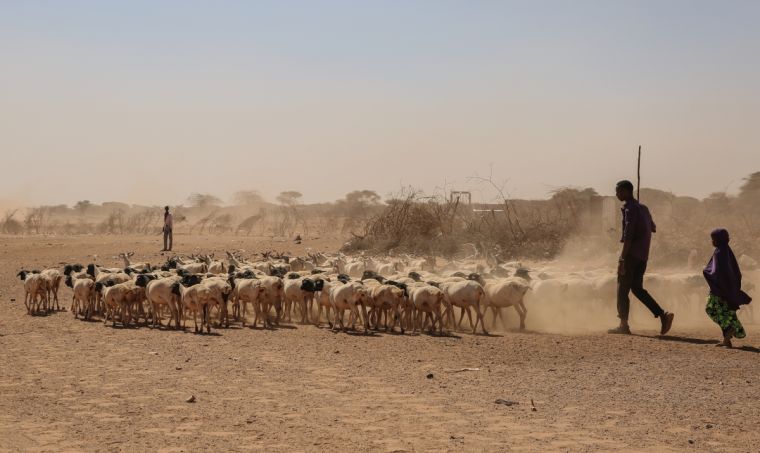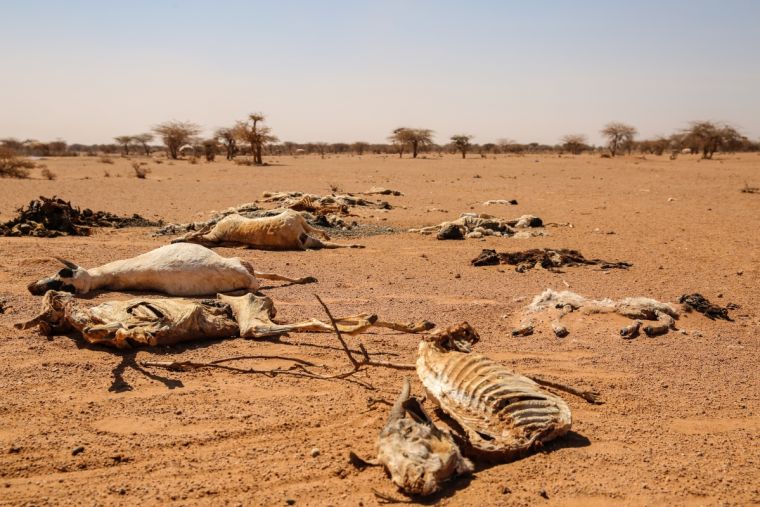Millions At Risk As Famine Looms In Somalia – Unless We Act Now

How far did you have to walk to get clean water this morning? For me, it was 10 feet. A cool glass of life-sustaining water was enjoyed without a second thought.
But millions aren't so fortunate. As the second famine to hit Somalia in six years looms, the average distance to water points has risen to 50 km, with some communities forced to travel as far as 125 km.
Severe drought has plagued the country for more than a year, affecting millions of families. 1.1 million people are internally displaced and 3.3 million people already require livelihood support.
The United Nations on Thursday warned that the situation could soon spiral further into catastrophe. Almost half of the Somali population – 6.2 million people – are now in need of immediate humanitarian assistance, up from five million in September. "In six months, we'll be facing a catastrophe and a famine on a scale we cannot imagine, if we don't act right now," a UN representative said.

2.9 million people are facing crisis or emergency levels of food insecurity, and 363,000 children under five years old are acutely malnourished. Around 71,000 children are severely malnourished.
Daily water consumption has dropped from 7.5 litres per person to just three litres – well below the internationally agreed minimum standard. And this severe fall in water levels has been matched by a steep rise in prices. Since June 2016, the cost of water has gone from $5 a barrel (200 litres) to $15. In some remote areas, the price has rocketed to as high as $30.
But spiralling costs are far from the only concern – in the Gedo region in Southern Somalia, 90 percent of villages are now reliant on unsafe water sources. Fears are growing about the spread of water-borne diseases after cholera outbreaks were reported across 25 districts late last year and animal carcasses are increasing the threat of water contamination.
Millions of families are at risk – including Deeqa Muuse, who was forced to leave her village along with her four children as a result of the drought.
"Water, food and shelter are the main problems we are facing; no support is coming from anywhere. We only get water once every three days," she said.
Deeqa and her family are from Beer village in the Togdheer region of Somaliland. They are among 330 local households moved three hours' drive away to seek better living with access to clean water. Deeqa's oldest son is just eight years old, but is no longer attending school – he is among 3 million school-age children Somalia who have lost access to education.
The worsening drought has caused multiple other problems, piling extra pressure on families which has led to separation, gender-based and sexual violence, and an increase in child marriage and child labour. Before the drought, Deeqa had more than 150 sheep and goats. Now she has just 40, all of which are weak and likely to die soon.
The crisis follows a famine that hit Somalia in 2011, killing more than 250,000 people before the international community woke up ready to help. Now the need is dire once again, the 'Never Again' pledge made six years ago is at risk of becoming an empty promise.
The UN's humanitarian coordinator for Somalia, Peter de Clercq, warned yesterday that the international community will need to "redouble our efforts to go into full emergency mode in the next few weeks".
"We are seeing growing similarities to the conditions that led to the famine in 2011 though, as numbers are showing, a much larger percentage of the country is at risk this time around," he said.
Hundreds of thousands of children and their families need immediate life-saving assistance and access to food, water, medicine and other basic services essential for their survival. World Vision, as part of the Somalia Humanitarian Country Team, has been at the forefront of fighting the drought. As the possibility of famine looms, we must respond immediately to avert a catastrophe, and not repeat a lesson that has already been learned. It is time to stand shoulder to shoulder with our fellow human, like Deeqa and her children.
It is time to act.
Geeta Bandi-Phillips is director of advocacy and external engagement at World Vision Somalia. Follow her on Twitter @bandiphillips











